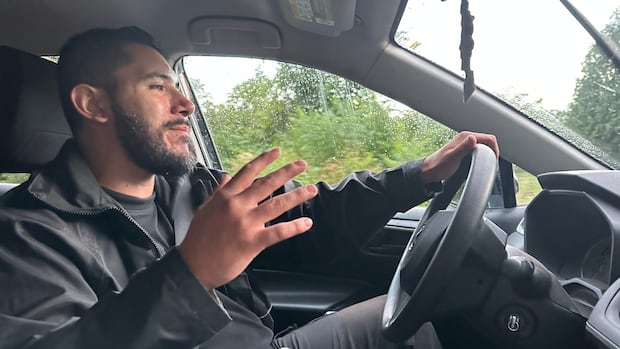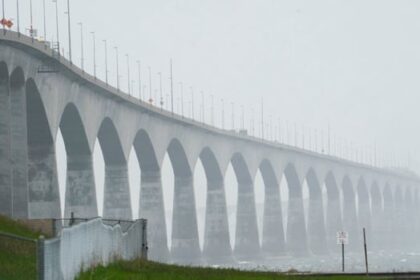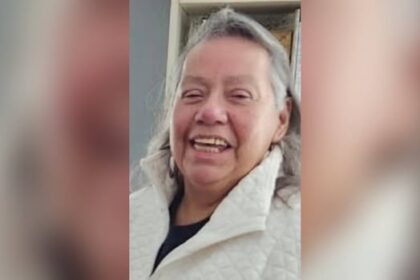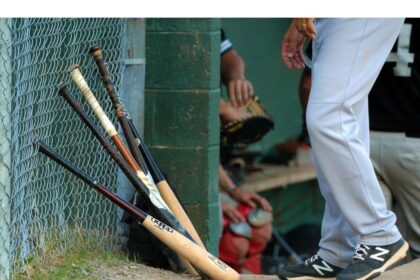Kane Montour, the co-ordinator for the Kanesatake Perimeter Security team, gets a call over the radio that there’s a man driving a hatchback parked by the band office in Kanehsatà:ke.Montour’s security team has been on the lookout for the man, who they say had previously claimed to be an undercover police officer and now says he’s a cybersecurity expert offering his services to the Kanien’kehá:ka (Mohawk) community, which is located about 60 kilometres west of Montreal. “Is this you?” said Montour as he pulled out his cellphone to show the man a security camera image taken from inside a local daycare. “Yes sir, that’s me,” said the man. “There were reports that … you were kind of rooting around, poking around where you weren’t supposed to be,” said Montour.After the man agrees to leave on Tuesday afternoon, Montour phones the Sûreté du Québec’s (SQ) community liaison. He provides the plate number and requests that the Quebec provincial police look into the man. The Kanesatake Perimeter Security (KPS) team is not a police force and calls the SQ whenever there are matters that require law enforcement.Later, the SQ officer reports back that there’s nothing of concern in their files, but says officers pulled the man over and told him to think twice before coming back to the territory.”That was weird,” said Montour. “Never a dull moment in Kanehsatà:ke.”Kane Montour, co-ordinator for the KPS team, stands at the summit of Blue Mountain overlooking the Kanien’kehá:ka (Mohawk) community of Kanehsatà:ke. He says his team deals with a broad range of issues that would fall under the responsibility of multiple agencies in other jurisdictions. (Jorge Barrera/CBC)CBC News accompanied the KPS during two shifts, one on the afternoon of Aug. 19, the other on the evening of Aug. 24, to get a close-up look at a team some in Kanehsatà:ke refer to as the “last line of defence.”Community members told CBC News that incidents such as arson, vehicle accidents and conflicts have increased over the past three years. Some in the community, which has no police force, blame the presence of cannabis megastores and a spate of illegal dumping that saw as many as 500 trucks a day roar into Kanehsatà:ke, according to Quebec court records.Some of those allegedly involved in the dumping also own cannabis megastores, which offer bars and casinos on their premises and host large events such as concerts. The stores operate outside of Quebec and Canada’s cannabis laws, and the Mohawk Council of Kanesatake has so far failed to pass any rules to regulate these operations, some of which are linked to organized crime, according to elected band officials.”We’re in a war zone,” Montour told CBC News. “Nobody is helping us.”WATCH | What’s behind the resistance to cannabis megastores:The Breakdown | Cannabis mega store resistance + Do protests work?The National goes to the First Nation at the centre of the 1990 Oka Crisis, where a new standoff is simmering over cannabis mega stores. Plus, do protests make a difference? Team responds to all calls, but faces limitationsMontour, 36, heads a 15-person team that patrols the territory from 7 a.m. to 11 p.m., and operates a telephone line that community members can call 24/7 to report emergencies and suspicious activity. Montour, who joined the team when it was created in 2020 as an emergency response unit tasked with staffing checkpoints during the COVID-19 pandemic, says KPS now deals with a broad range of issues that would fall under the responsibility of multiple agencies in other jurisdictions. He says the team has been involved in search and rescue efforts, fires, car accidents, traffic control, domestic disputes, overdoses, suicides and domestic conflicts, while also maintaining regular community patrols. “You name a situation, we probably dealt with it,” said Montour. “We are not police officers, we don’t carry a gun with us, we don’t arrest … People, I think, don’t realize the limitations of things that we can and can’t do.” Mountour-Jacobs sits in his vehicle as he speaks with his colleague, Jeffrey Simon, during patrols on Sunday. The team often finds itself working with Quebec’s provincial police force, the Sûreté du Québec. (Jorge Barrera/CBC)Montour says the team provides a link and a buffer between the community and SQ, which mainly patrols Highway 344, which cuts east-to-west through the territory. “People don’t want to call the SQ, so they’ll call us,” he said. The SQ said in an emailed statement that the police force has “very good collaboration” with the KPS and conducts about 20 “interventions” with the security team every year.Keeping a watchful eyeThis Sunday evening, some of the cannabis stores hosted a free hip-hop concert featuring rapper Xzibit. In the past, these types of events have put a strain on Kanehsatà:ke, which has an on-territory population of about 1,700 people. The KPS team’s main focus during the evening — with four patrol vehicles in circulation — was keeping concertgoers from parking on or entering community areas outside the event space and keeping a lid on any disturbances before they got out of hand.The concert organizers provided their own on-site security and directed event traffic from Highway 344 down a narrow side road to a $20-a-vehicle parking area across two fields.KPS member Tehoronhiatenion Mountour-Jacobs, 23, joined the team in late December. He grew up in Kanehsatà:ke, but currently lives in Kahnwake, the sister community located just south of Montreal. He estimated there were a little over 1,000 people at the event.”Our job is to keep things safe,” said Montour-Jacobs, who is Kane Montour’s brother.KPS team supervisor Shawn Thornicroft loads pilons into the back of a pickup truck after a hip-hop concert in the community Sunday. (Jorge Barrera/CBC)He says having outsiders coming in and being disrespectful by loitering and littering is “the last thing” Kanehsatà:ke needs.”Eighty per cent don’t care about the community. They’ll throw their garbage around,” he said.Tracking down and expelling non-residents who enter areas of the territory that are off-limits to outsiders has become a recurring task for KPS.And this night is no different. The KPS team repeatedly turns away concertgoers who are trying to park at the elders’ lodge.At one point, KPS supervisor Shawn Thornicroft reports over the radio that he’s received a call about people looking through yards in an area west of the concert site.Anthony Fournier-Phillips, who’s been with KPS for five years, stands inside the group’s headquarters. The team also operates a telephone line that community members can call 24/7 to report emergencies and suspicious activity. (Jorge Barrera/CBC)Montour-Jacobs and the team swing into action. Two of the team members, Jeffrey Simon, a musician who recently joined, and Anthony Fournier-Phillips, who has been patrolling for five years, head straight to the location of the call. Montour-Jacobs patrols around the vicinity, slowly rolling up and down residential roads in the area to see if anything is amiss.After several passes, they determine all is calm. “We roughly do about 100 kilometres on each vehicle a day,” said Thornicroft, who joined the patrols during the pandemic. Funding uncertainSerge Simon, who served as grand chief of Kanehsatà:ke until 2021, says KPS has filled a gaping need in the community. The local police force was disbanded in 2004 after a disastrous, federally approved and funded raid.He says KPS received a budget of about $1.2 million this fiscal year through Indigenous Services Canada (ISC) to cover salaries, equipment, vehicle maintenance and upgrades.Serge Simon, the former grand chief of Kanehsatà:ke, says KPS fills a need in the community, which hasn’t had a local police force since 2004. (Brenda Witmer/CBC)”There is a big question as to whether it can be renewed,” said Simon, who was a member of the elected council in the most recent term.ISC said in an email statement sent to CBC News that it has provided $800,000 a year over two years for the team through a program that will end after this fiscal year. The department said it was “working alongside community to determine the best path forward.”Kanehsatà:ke is currently in a state of political limbo following the cancellation of the Aug. 2 band election. The previous council filed for a judicial review with the Federal Court of Canada Tuesday seeking a ruling that it still has the authority to hire a new electoral officer to run another election.Montour says his team must remain politically neutral and stay focused on keeping watch over the territory.From left, Simon, Mountour-Jacobs and Thornicroft regroup during patrols at the band office parking lot in Kanehsatà:ke. (Jorge Barrera/CBC)He is currently working on a proposal seeking additional federal funds that would provide extra training and a new shift.”Things get burnt, things get rammed, things get spray painted, and what time do you think it’s all happening? After the KPS closes at 11 o’clock,” said Montour. “We’ve made that much of a difference from 7 a.m. to 11 p.m., we need to have a third shift.”
Thursday, 5 Feb 2026
Canada – The Illusion
Search
Have an existing account?
Sign In
© 2022 Foxiz News Network. Ruby Design Company. All Rights Reserved.
You May also Like
- More News:
- history
- Standing Bear Network
- John Gonzalez
- ᐊᔭᐦᑊ ayahp — It happened
- Creation
- Beneath the Water
- Olympic gold medal
- Jim Thorpe
- type O blood
- the bringer of life
- Raven
- Wás’agi
- NoiseCat
- 'Sugarcane'
- The rivers still sing
- ᑲᓂᐸᐏᐟ ᒪᐢᑿ
- ᐅᑳᐤ okâw — We remember
- ᐊᓂᓈᐯᐃᐧᐣ aninâpêwin — Truth
- This is what it means to be human.
- Nokoma











